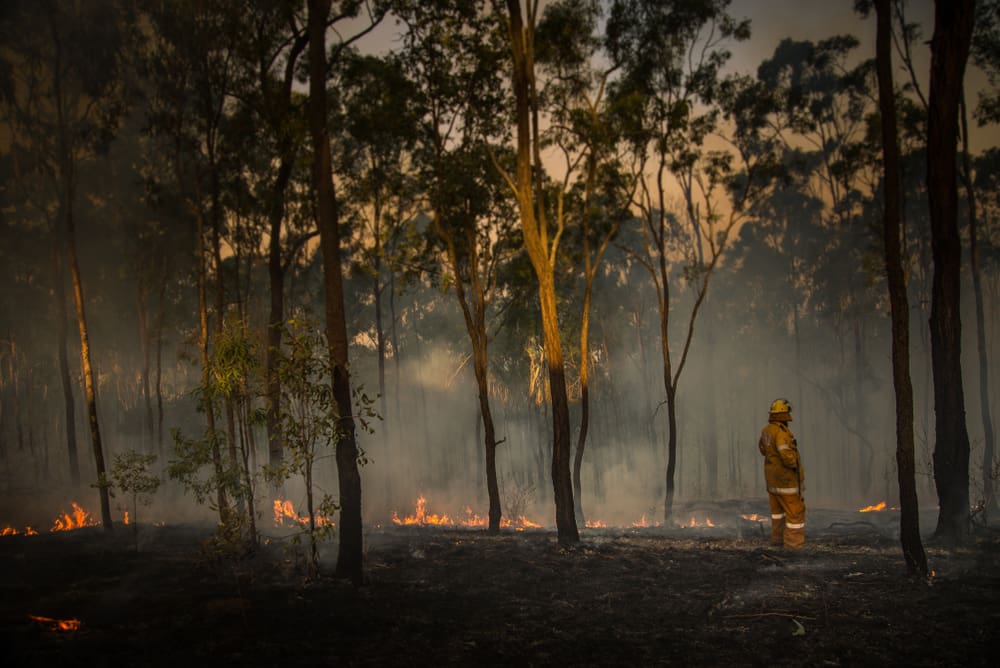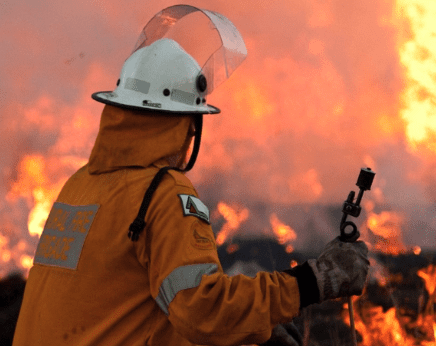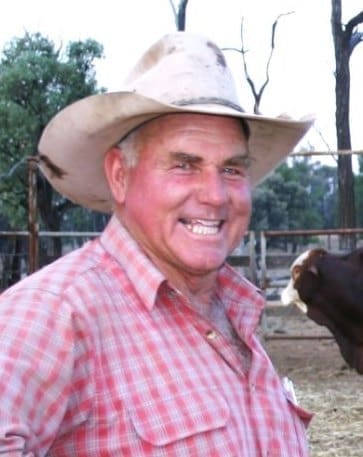
There are calls for Queensland to return to having a standalone independent rural fire service as exists in other states.
Members of Rural Fire Brigades Queensland voted unanimously at the association’s general meeting last month for the Queensland Government to re-instate a fully independent, standalone Rural Fire Service in Queensland, and for the body to have its own separate legislation and budget and to report directly to the Minister.
 In other States rural fire services are standalone agencies, such as the NSW Rural Fire Service and Country Fire Authority in Victoria.
In other States rural fire services are standalone agencies, such as the NSW Rural Fire Service and Country Fire Authority in Victoria.
In Queensland the Rural Fire Service once operated autonomously under its own legislation, but was incorporated into the Queensland Department of Emergency Services in 1990.
In recent weeks as major fires have blazed from one area of the state to the other, landholders and fire fighting volunteers have raised concerns about local knowledge and expertise being disregarded when fire management is taken over by fire command centres, which can be long distances from the fire front.
Volunteers risk prosecution for backburning
In some cases landholders conducting back burning fires to control a front have been warned they face prosecution for starting new fires because a fire ban is technically in place.
The situation has prompted some local representatives to speak out about “unnecessary bureaucracy, fear of liability and red tape” making a bad fire situation worse.
Problems with the State’s existing fire management framework were identified in a 2021 review of the Queensland Fire and Emergency Service by KPMG.
 The review identified, among other issues, that the Rural Fire Service, while covering 93 percent of Queensland’s land area with a predominantly voluntary workforce, is allocated only about 6 percent of the QFES’ corporate services budget each year.
The review identified, among other issues, that the Rural Fire Service, while covering 93 percent of Queensland’s land area with a predominantly voluntary workforce, is allocated only about 6 percent of the QFES’ corporate services budget each year.
Following the review the Queensland Government announced late last year that the 10-year-old Queensland Fire and Emergency Services (QFES) will be replaced.
As part of the reform a specific Fire Services Department will be created in its place.
The Rural Fire Service will be hosted within the new department as a separate entity with its own dedicated budget, Minister Mark Ryan said when announcing the reforms in October last year.
Rural Fire Brigades vote unimously for standalone Rural Fire Service
However, brigade members voting at the RFBAQ’s general meeting last month clearly voiced their opinion that a return to a fully independent entity reporting directly to the minister is the preferred option for rural fire fighters.

Justin Choveaux
“The only ones who know how a fire travels through the landscape is someone who lives there,” RFBAQ General Manager Justin Choveaux told Beef Central this week.
“And to take the power away from someone who lives there and for a decision to be made 50, 500, 1000 km away is not how you meet a local need.”
One of the major problems with current arrangements, as Justin Choveaux explained, is that landholders and brigade members are a constant in the same landscape, fighting fires and accumulating local knowledge year after year, whereas the personnel they are dealing with in QFES control centres typically change from fire year to fire year and are not constant.
“It is not that they are bad people, it is just we have got two completely dissimilar machines smashed together,” he said.
Train landholders to join command centres
Landholders and brigade members involved with fire-fighting efforts in recent weeks have expressed frustration at being excluded from fire management decisions in their regions.
After a week of fighting fires on local properties, cattle industry leader Adam Coffey suggested a similar approach to emergency disease outbreak management be adopted where locals with experience and knowledge are trained and paid to participate in command centres during emergencies.
“It serves a number of functions including informing the command centre about local practicalities and what might work and may not work on the ground, and being the liaison back to fellow producers and community about what is happening.
“You would think there would be a cost benefit in spending that money to train local people, compared to putting resources where they are not needed.
“We need to have an open and honest discussion about it, because people’s livelihoods and lives are at stake .”
Red tape stifling fire preparations
 Last month before the major bushfires of recent weeks ignited, Central Queensland landholder John Burnett spoke about how red tape was stifling opportunities to carry out hazard reduction burns.
Last month before the major bushfires of recent weeks ignited, Central Queensland landholder John Burnett spoke about how red tape was stifling opportunities to carry out hazard reduction burns.
“We had a situation the other day where our Fire Warden could not issue permits because someone had called a total fire ban based on the weather forecast,” he said.
“But the weather forecast does not consider the different situations on the ground – you might have logs on cultivation country, you might be in areas neighbouring overgrazed paddocks, which are very different to dry grass in woodland.
“The communities have elected a responsible person to be Fire Warden of their area and they know the intricacies of those areas. I think you need local management rather than statewide management of fire permits, because you might have a situation where it is unsafe to burn in one area and perfectly (safe) 50km away.”
